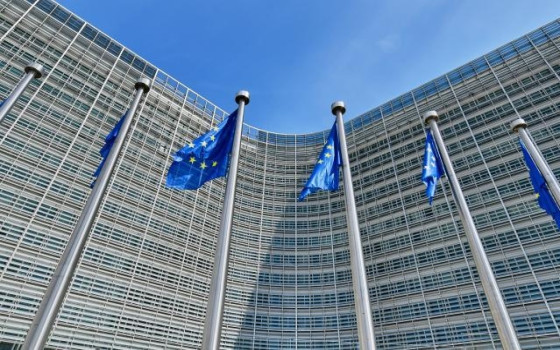
European Commission investigation: Special tax plans in Germany for public casino operators do not comply with state aid rules

- Europe and Arabs
- Thursday , 20 June 2024 17:58 PM GMT
Brussels: Europe and the Arabs
The European Commission in Brussels has concluded that Germany's special tax plans for public casino operators are not in line with EU state aid rules. Germany must now restore incompatible state aid, including interest, and cancel future tax schemes. According to what was stated in a statement issued Thursday by the Commission
investigation
In December 2019, the Commission opened an in-depth investigation to assess whether special tax plans applied to public casino operators in Germany were in line with state aid rules. The investigation followed complaints from competitors at public casinos.
In Germany, operators of public casinos (Spielbankunternehmen) are subject to special tax schemes (one in each state, Bundesland) that replace a series of applicable general taxes, in particular the corporate or income tax and the local entertainment tax.
Commission evaluation
Based on its in-depth investigation, the Commission found that special tax schemes entail an economic advantage for public casino operators in the form of a lower potential tax burden compared to normal tax rules.
It also found that, as a result of the design of the special tax rules, the advantage is not automatic, and does not accrue in all tax years and for all operators. Therefore, it will be up to the German authorities to determine whether the advantage has been granted to public casino operators. According to the Commission's preliminary calculations, recent reductions in special taxes in some countries may have resulted in advantages for at least some operators active in those countries.
The Commission also considered the recent amendment to the special tax rules in Hamburg. In this state, the legislature proactively introduced as of January 1, 2024 a new equalization tax payable by the operator of public casinos. This tax is paid in the event that the tax burden borne by the operator under the special tax rules is less than the tax burden borne by the operator under the normal tax rules. The Commission considered that this mechanism automatically prevents the operator from obtaining an advantage, such that the special tax rules in Hamburg do not constitute state aid as of 1 January 2024.
Germany must now recover the mismatched aid, plus interest. Since Germany will have to determine whether or not the benefit has been granted to public casino operators and, if so, the amount to be recovered from each potential recipient of the non-compliant aid, the total amount of aid to be recovered is not yet known. platform.
background
According to Article 107(1) of the Treaty on the Functioning of the European Union, an measure constitutes State aid if the following four cumulative conditions are met: (1) the measure must be granted by Member States through State resources; (2) the measure must give a selective economic advantage to particular firms, (3) the competitive advantage must distort or threaten to distort it, and (4) the measure must affect trade between EU member states.
In cases involving a measure that derogates from the normal tax rules, the Court of Justice of the European Union has explained that the advantage criterion has already been met when the scheme confers a mere “potential” advantage that may only be realized in certain circumstances or only in certain tax years.
EU state aid rules require the recovery of non-compliant state aid in order to remove the distortion of competition caused by the aid. There are no fines under EU state aid rules and the purpose of the recovery is to restore the situation that existed in the internal market before the aid was paid. By returning illicit aid, the beneficiary loses the advantage he had over his competitors.












No Comments Found